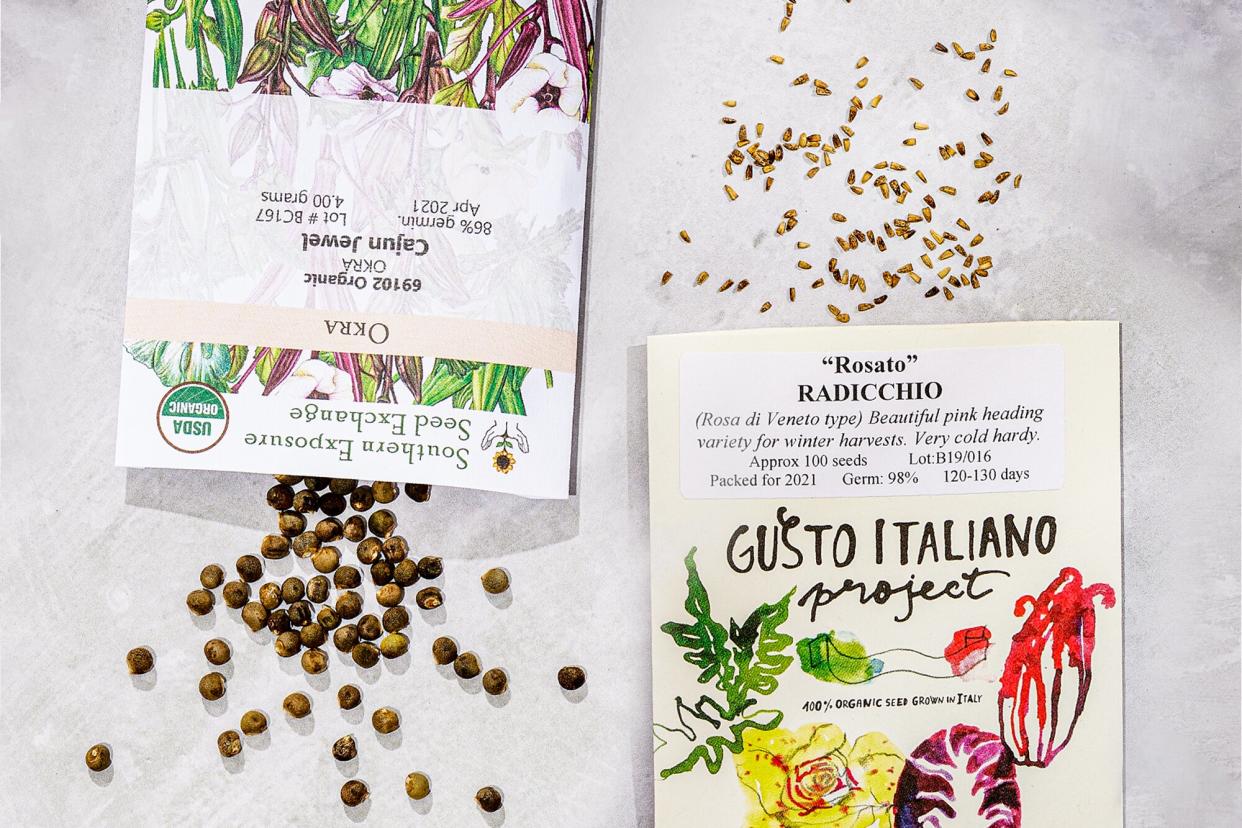Doing Some Garden Dreaming for Next Spring? Add Some New Varieties with Seeds From These Companies

JULIE GOLDSTONE
There's no better way to best the winter blues than to start shopping for seeds for your spring garden. We love supporting smaller industry players with lesser-known cultivars (and flavors!) that offer greater genetic diversity, essential to creating a resilient food system in the face of our changing climate. So, this year, consider snagging seeds from one of these four sellers.
Related: 7 Things I Wish I Knew Before I Started My First Garden
Kitazawa Seed Co.
Gijiu Kitazawa, who was born in Japan, started his seed company in 1917 in San Jose, California, to supply other immigrants with seeds for traditional Asian produce that wasn't available in U.S. markets. Now based in Oakland, the company serves as a distributor for small seed producers in Japan, Taiwan, Vietnam, Thailand and the U.S. In its catalog, you'll find some familiar staples, like edamame and daikon, plus lesser-known cultivars, including a whopping 10 varieties of perilla, and fresh herbs, including Chinese celery, Japanese parsley (mitsuba) and Vietnamese mint (kinh gioi). Check them out of their website at KitazawaSeed.com.
Native Seeds/Search
This Tucson, Arizona-based nonprofit was originally founded to support the Tohono O'odham Nation in establishing gardens. Today, 70% of the seeds in its seed bank come from some 50 different Indigenous communities. The collection of nearly 2,000 cultivars, such as beans, corn (many types of flint, popcorn and sweet), peppers, squash and sunflowers, are adapted to grow in the arid Southwest, where water is scarce and summer temperatures get so hot that many other plants actually stop growing. Check out their website at NativeSeeds.org.
Southern Exposure Seed Exchange
In the rolling hills of central Virginia lies Southern Exposure Seed Exchange, a 72-acre cooperative farm. In its catalog you'll find around 800 varieties of vegetables, flowers, herbs and grains, including heirloom varieties of Southern favorites , such as peanuts, collards, okra, turnip greens and butter beans. More than 98% of the seeds they offer are open-pollinated, meaning you can save the seeds and grow them again next year, allowing the cultivar to continue adapting to unique local conditions. Check out their website at SouthernExposure.com.
Uprising Seeds
Husband-and-wife duo Brian Campbell and Crystine Goldberg started their company in 2007 to offer plant varieties especially suited to the maritime Northwest. They grow about three-quarters of their non-GMO, open-pollinated seeds on their own 100% certified organic farm—a real rarity in the seed world—and partner with other Northwestern growers for the rest. Their years of testing to see which cultivars do well in this area have yielded some amazing results, such as Blacktail Mountain watermelon, which grows big and sweet, no matter how cold and rainy the growing season is. Check out their website at UprisingOrganics.com.

